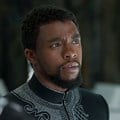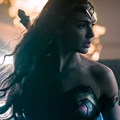Shall we discuss the giant black panther currently in the room? I have been keeping track of the production of Marvel's Black Panther for the last two years and the end result is beyond anything I could have imagined.
I honestly thought that Black Panther would be on the same level as Dr Strange and Spider-Man: Homecoming; that it would be solid but serve more as just another introduction of a new character to the Marvel Cinematic Universe. You know, setting up all the pieces for Avengers: Infinity War. I should have known better, I really should. I should have know when the legendary South African actor, John Kani appeared as King T’Chaka in Captain America: Civil War and greeted his son, T’Challa, in Xhosa that it was a foreshadow to something that would turn the world on its head.
Lerato Serumula 19 Feb 2018
Black Panther is a great Marvel movie but it has also managed to give black people a sense of pride at a time when we need it most. When I went to see Wonder Woman last year I walked out of the cinema grinning from ear to ear because it came at a time women needed a heroine.
I walked out of the cinema after watching Black Panther and I was stunned at how good it felt to see a comic movie and relate to it with your heart and soul. As a black, Xhosa-speaking South African I’d venture to say that I got more from the film than a black American did. But, hey, there is more than enough meaning in the movie to go around for everyone. I don’t know if what I am writing next is going to be a review or a verbal rain dance giving thanks to Marvel Studios and Ryan Coogler for telling a story that gives voice to a people.
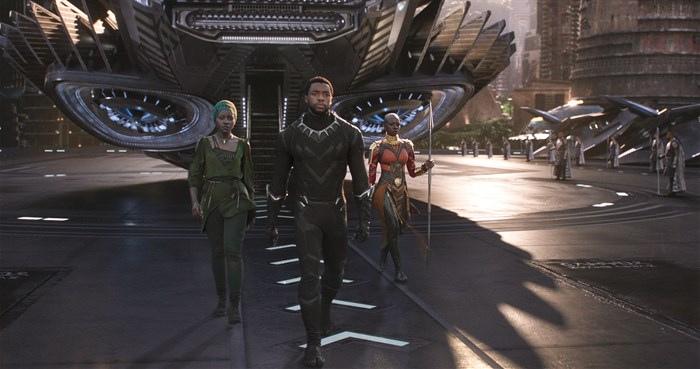
I do not dare to give away too much of the plot because you really have to experience it for yourself but, in a nutshell: Black Panther kicks off right after Civil War and T’Challa arrives back in Wakanda to take up his deceased father’s mantle as king. Chadwick Boseman plays the character of a son who has to step up and be king in a quiet and thoughtful manner. His rule is challenged from within Wakanda and also from without. There is also conflict within himself about what sort of king he wishes to be and in what direction he will lead his people. Andy Serkis’s Ulysses Klaue is cruel and has this crazy sense of humour that you can’t help but like. They have Andy Serkis really lay that South African accent on you and it works. Klaue quickly gives way to Erik Killmonger as the main villain of the piece. Michael B. Jordan steals the show and his Killmonger sends chills down your spine whilst simultaneously breaking your heart. Killmonger is the MCU’s most tragic villain and while you know that he has to be stopped the reasons he does what he does, make sense. He is the Hamlet of Wakanda.
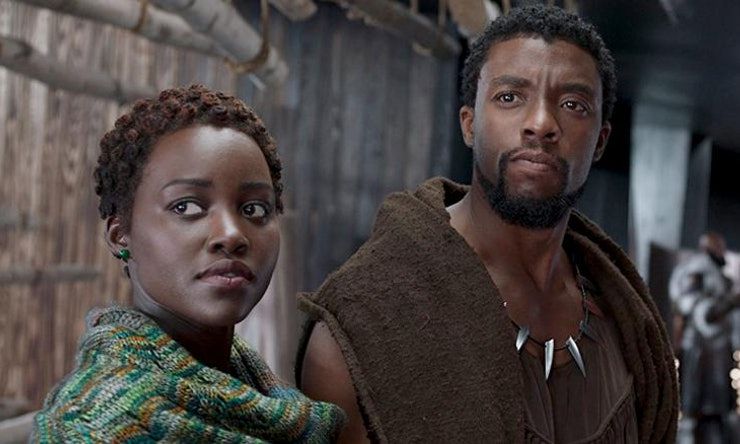
The female characters are my favourite. The women of Wakanda are intelligent, resourceful, and will definitely kick your ass! T’Challa’s love interest is Nakia played by the gorgeous Lupita Nyong’o. She is an undercover spy and can more than hold her own in any situation. Letitia Wright plays T’Challa’s sister, Shuri. At age 16 she is Wakanda’s genius inventor who takes every opportunity to make fun of her older brother. Danai Gurira’s Okoye is Wakanda’s greatest warrior. She is head of the Dora Milaje, the elite, all-female unit that guards the king. She is no-nonsense and loyal to the throne.
Other characters that stand out are Martin Freeman as Everett K. Ross, Daniel Kaluuya from Get Out as W’Kabi, Winston Duke as M’Baku, Forest Whitaker as Zuri, and the graceful Angela Basset as Romanda, T’Challa’s mother. John Kani returns from Civil War to portray T’Chaka and his son, Atandwa Kani portrays a young T’Chaka. Another South African television and film veteran, Connie Chiume appears as the elder of the Mining Tribe.
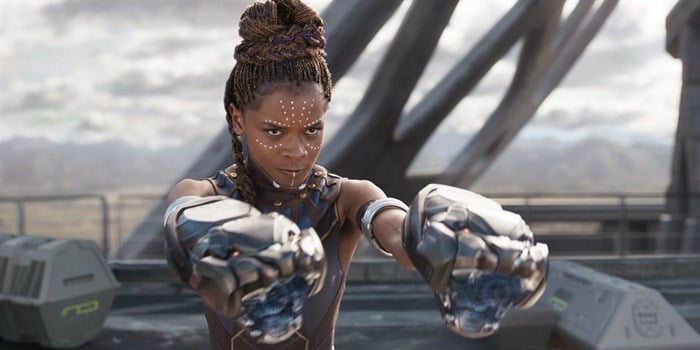
The Wakanda that director Ryan Coogler and his team have brought to life is a visual miracle. In the trailer, you hear Everett Ross’s character say: “I have seen gods fly. I have seen men build weapons that I couldn't even imagine. I've seen aliens drop from the sky. But I have never seen anything like this.” We have seen places like Asgard and Xandar but we have not seen anything like Wakanda. The research that Coogler’s team did was clearly extensive. They took inspiration from South Africa, Zimbabwe, Namibia, Ethiopia, Kenya, Nigeria, Uganda, Ghana, and many other African countries to create the aesthetics of Wakanda. Throw in some advanced tech and you have an Afro-tech society like no other. We have long known that black culture inspires many fashion trends so it comes as no surprise that everything in Wakanda drips style. Black culture has also always been at the forefront of music so it makes sense that the music in Black Panther, like in Luke Cage, can almost be seen as a character in its own right. The soundtrack, spearheaded by the urban poet (as Malusi Gigaba referred to him in the Budget Speech) Kendrick Lamar is worth listening to on its own. If you’re a fan of the Black Panther comic books, you’re also covered. The movie digs quite deep into the lore with many of its Easter eggs.
Black Panther is not merely a comic book film but a celebration that I think anyone can enjoy. You don’t have to be black or into comic books to enjoy this movie. It is not perfect but where it falters you can easily forgive those missteps. At some points, the actors butcher the Xhosa language but you can see that they gave it their best and you appreciate the effort. If you have not seen Black Panther yet, go out and do so. #WakandaForever
A note on representation and gatekeeping
I have been involved in nerd, geek, and pop culture ever since I picked up a copy of Spider-Man in my first year of school and I love the community with my heart and soul but there is a large part of our culture that is toxic. The culture still has too many fragile male egos that rail against making room for women or people of colour. There is also still a hipster-like gatekeeping culture that bars anyone with only a casual or mainstream interest in the culture. If you don’t know what happened in The Uncanny X-Men #141-142, you’re not one of us. If you don’t know who the wizard, Radagast the Brown in The Lord of the Rings is, do you even really nerd, bro’? Seeing projects like Wonder Woman, Luke Cage, Black Panther and the new Star Wars films become more inclusive gives us hope that our culture will get to a point where we can tell the stories that make room for all of us as human beings. I always go back to Grant Morrison’s Final Crisis as the high-water mark for the grand scale in which comic books can tell stories and a quote by one of the celestial beings (I always forget if it was Zillo Valla or Weeja Dell) monitoring the multiverse is what I think inclusive stories should be: “We all now have names and stories; there are heroes and villains, secrets and lovers.” That is what we all want, to have names and stories in the media. Films like Black Panther bring us closer to that.































